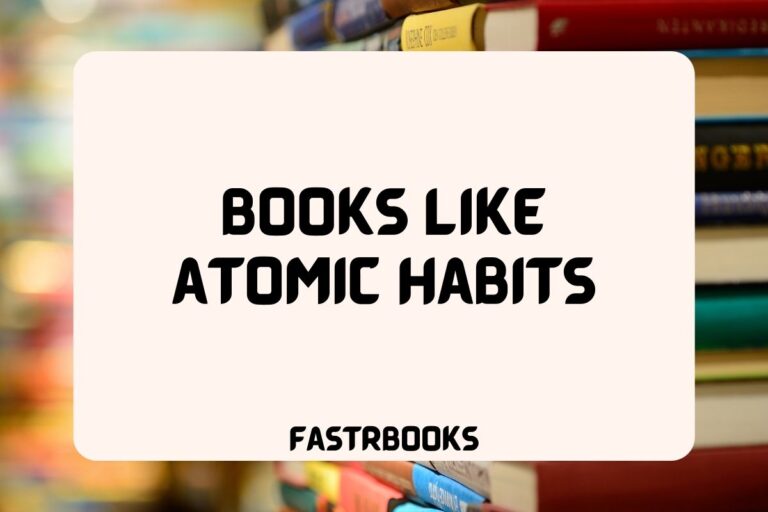9 Best Books on Memory

Memory is the cornerstone of human cognition, allowing us to learn, adapt, and navigate life with all its glory.
Fortunately, memory is not a fixed entity; it can be trained, honed, and expanded through various techniques and practices.
And what’s the most effective way to do it?
Learning.
Countless authors have delved into the intricacies of memory, offering insights, strategies, and exercises to boost its capacity and efficiency.
In this blog, we’ll explore some of the best books on memory, each offering a unique perspective and valuable tools to unleash the full potential of your cognitive abilities.
Best Books on Memory
1. “Moonwalking with Einstein” by Joshua Foer
This book explores the fascinating world of competitive memorization and the author’s journey from being a science journalist to winning the U.S. Memory Championship.
Joshua Foer delves into the historical context of memory techniques, meeting with various memory experts and neuroscientists to understand how the brain remembers.
He also experiments with ancient mnemonic strategies to improve his own memory, demonstrating their effectiveness through his personal achievements.
What makes it amazing?
“Moonwalking with Einstein” stands out because it transforms the abstract concept of memory into a captivating narrative. Foer’s personal journey from novice to memory champion provides a practical framework for applying these ancient techniques in modern life.
The book is not only informative but also incredibly inspiring, showing that anyone can improve their memory significantly with the right techniques and dedication.
2. “The Art of Memory” by Frances Yates
Frances Yates’s groundbreaking work explores the history of memory aids and techniques from ancient Greece to the Renaissance.
She delves into how philosophers, orators, and religious figures used elaborate systems of memorization to store and retrieve vast amounts of information.
Yates’s research sheds light on the art of memory as a form of hermetic wisdom, illustrating its evolution and impact on Western culture.
What makes it amazing?
“The Art of Memory” is remarkable for its depth of historical scholarship and its exploration of how memory techniques have shaped intellectual history.
Yates’s analysis offers a unique perspective on the power of memory as a tool for knowledge and creativity. The book is a seminal work in the study of mnemonic systems, providing insights into the mind’s capacity to store knowledge through imagery and association.
3. “Make It Stick: The Science of Successful Learning” by Peter C. Brown, Henry L. Roediger III, and Mark A. McDaniel
This book challenges conventional wisdom about the best ways to learn and remember information.
The authors, combining evidence from cognitive psychology and neuroscience, advocate for techniques such as retrieval practice, spaced repetition, and elaboration to make learning more effective and enduring.
“Make It Stick” provides practical advice for students, educators, and lifelong learners on optimizing their study habits.
What makes it amazing?
“Make It Stick” is amazing because it translates complex scientific research into actionable strategies for improving memory and learning. The book is filled with real-world examples and case studies that demonstrate the effectiveness of its recommendations.
It empowers readers to transform their approaches to learning, making it a valuable resource for anyone looking to enhance their cognitive abilities.
4. “Remember: The Science of Memory and the Art of Forgetting” by Lisa Genova
Neuroscientist and author Lisa Genova explores the intricacies of how we remember and why we forget. The book combines the latest research in the field of memory with engaging stories to explain how memories are formed, stored, and sometimes lost.
Genova offers insights into the processes of memory and provides tips on how to improve memory and reduce forgetfulness.
What makes it amazing?
“Remember” is amazing for its accessible approach to the complex science of memory. Genova’s ability to explain neurological concepts in a clear and engaging manner makes the book a fascinating read for anyone curious about how their memory works.
The practical advice and compassionate understanding of memory-related issues, such as Alzheimer’s disease, make this book not only informative but also deeply meaningful.
5. “The Memory Illusion: Remembering, Forgetting, and the Science of False Memory” by Julia Shaw
In “The Memory Illusion,” Dr. Julia Shaw delves into the surprising world of memory, revealing how unreliable our memories can be. Through a combination of research and intriguing experiments, Shaw demonstrates how our memories can be distorted, fabricated, or even implanted.
The book explores the implications of false memories for the legal system, personal relationships, and our understanding of history.
What makes it amazing?
“The Memory Illusion” is amazing because it challenges readers to question the reliability of their own memories. Shaw’s exploration of false memories is both unsettling and enlightening, showcasing the malleability of human memory.
The book provides a compelling look at the science behind memory and its implications for society, making it a must-read for anyone interested in the psychology of memory.
6. “Memory Craft” by Lynne Kelly
Lynne Kelly’s “Memory Craft” offers a practical guide to enhancing memory through the use of ancient techniques and storytelling.
Kelly, a researcher in the fields of memory and indigenous cultures, presents a variety of methods and tools that have been used throughout history to remember information, from the Aboriginal Australian songlines to the memory palaces of ancient Greece.
The book is a treasure trove of memory-enhancing techniques that can be applied in everyday life.
What makes it amazing?
“Memory Craft” is amazing because it not only provides a historical perspective on mnemonic techniques but also serves as a practical handbook for anyone looking to improve their memory skills. Kelly’s approach is hands-on, encouraging readers to experiment with different methods to find what works best for them.
This book stands out for its blend of storytelling, cultural exploration, and actionable advice, making it a fascinating and useful read.
7. “The Memory Book” by Harry Lorayne and Jerry Lucas
“The Memory Book” is a classic in the field of memory improvement, written by memory expert Harry Lorayne and former NBA star Jerry Lucas.
The book introduces readers to simple yet powerful techniques for developing a photographic memory, improving recall, and increasing reading speed and comprehension.
Through a series of easy-to-follow exercises, Lorayne and Lucas demonstrate how anyone can apply these methods to benefit their personal and professional lives.
What makes it amazing?
What makes “The Memory Book” amazing is its accessibility and effectiveness. The techniques presented are straightforward and can be implemented immediately, with readers often experiencing significant improvements in memory retention and recall.
Its enduring popularity attests to its success in helping people harness their memory’s potential, making it a timeless resource for memory enhancement.
8. “How We Learn: The Surprising Truth About When, Where, and Why It Happens” by Benedict Carey
Benedict Carey’s “How We Learn” breaks down the science behind learning and memory, challenging traditional notions of education and study habits. Carey, a science reporter, sifts through decades of research to uncover counterintuitive findings about how memory works.
The book offers insights into the role of sleep, procrastination, and even forgetting in the learning process, providing readers with strategies to learn more efficiently and retain more information.
What makes it amazing?
“How We Learn” is amazing for its engaging narrative and practical implications for both educators and learners. Carey’s ability to distill complex research into actionable advice transforms the way readers approach learning and memory.
This book is a revelation for anyone interested in the cognitive science behind learning, making it a compelling read for those looking to optimize their educational practices.
9. “Your Memory: How It Works and How to Improve It” by Kenneth L. Higbee, Ph.D.
Kenneth L. Higbee’s “Your Memory” is a comprehensive guide to understanding the mechanisms of memory and how to enhance its performance.
The book covers a wide range of topics, from basic memory principles to advanced mnemonic techniques. Higbee, a psychology professor, combines scientific research with practical exercises, offering readers effective strategies for improving their memory in various aspects of life.
What makes it amazing?
“Your Memory” is amazing for its thorough exploration of memory from both a theoretical and practical standpoint. Higbee’s clear explanations of complex concepts make the science of memory accessible to all readers.
The book’s practical tips and exercises provide valuable tools for anyone looking to boost their memory skills, making it an essential resource for students, professionals, and lifelong learners alike.






